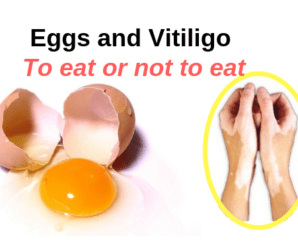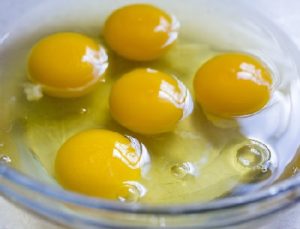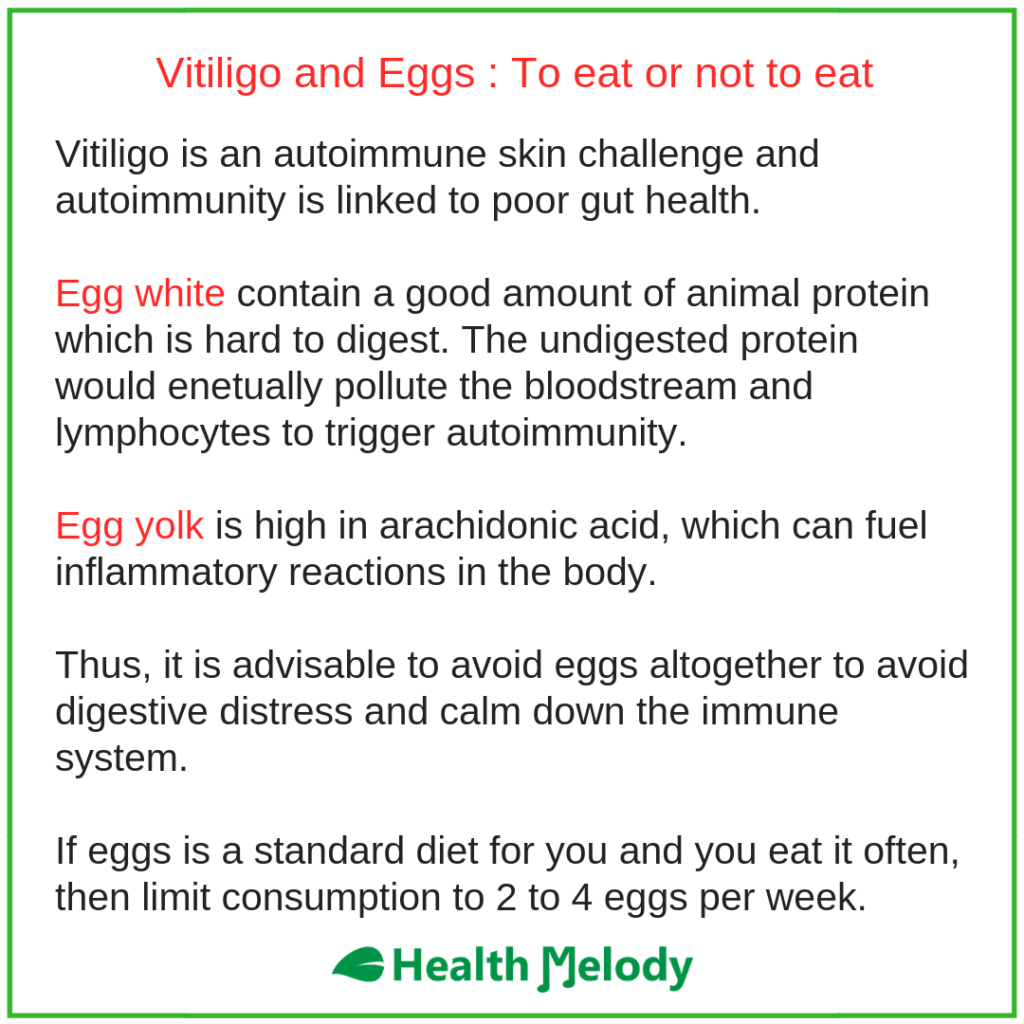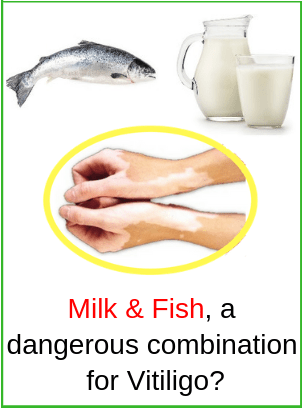
Vitiligo and Eggs : To eat or not to eat
Wondering if eggs are allowed in vitiligo healing diet chart? I would say avoid them if possible. However, if eggs make an integral part of your daily diet, then limit their intake to 2 to 4 eggs per week. People with vitiligo should not consume it as a dietary staple.
The egg white is rich in animal protein, which would put a lot of burden on the digestive health and the undigested protein would eventually pollute the blood stream to trigger autoimmunity. To add on, the egg yolk is quite high in arachidonic acid which increases inflammation in the body.
If you are a victim of digestive distress and suffer from gas, bloating, constipation or indigestion, then eliminating eggs from your diet would definitely help you.
Egg is a popular animal protein in the human diet
Eggs are one of the most commonly used animal proteins in the human diet around the world. Their affordability, easy availability and decent taste make them a popular staple food, particularly for breakfast (in the form of omelette) and for a variety of baking recipes. The whole eggs are a good source of protein and fats along with other essential nutrients in varying amounts.

- The egg yolk (inner yellow portion) of a large sized egg provides more than 60% of the daily requirement of cholesterol for an adult. That’s why the American Heart Association suggests one egg per day for healthy individuals, not more than that, to prevent heart issues. (1) A study reported in health magazine, Circulation, also support this claim. (2) Irrespective of the method of cooking, the increased consumption of eggs is linked to a risk of heart problems, diabetes and colon cancer. (3, 4, 5)
- The egg whites provide protein only, no fats. Hence, many of the health conscious people tend to consume egg whites only to get lean protein; throwing away the egg yolk to avoid overdose of fats and cholesterol. But, they miss out on many of the other key nutrients like vitamin D, vitamin A, vitamin B12, B complex vitamins and iron which are mainly concentrated in the egg yolk only.
Vitiligo and Eggs : To eat or not to eat
To get the answer of this question, we have to first understand what exactly vitiligo is and what are the probably causes for this skin condition.
Vitiligo is an autoimmune skin condition; the faulty, confused immune system attacks pigment producing skin cells to cause skin de-pigmentation in the form of white patches on the skin. The exact cause of autoimmunity is not known, but, list of probable causes includes:
- Poor gut health (chronic indigestion, constipation, lack of healthy gut bacteria, low stomach acid, food allergies)
- Chronic stress
- Faulty genes (hereditary)
- Liver impairment
- Excessive consumption of antibiotics, steroids, certain medications and vaccination
- Poor diet, sedentary lifestyle and lack of sleep
- Infections such as strep throat
- Heavy metal toxicity due to contaminated water and pesticides in foods
Here, you can see that vitiligo is not just a skin disorder, but, an internal body related issue and hence, real treatment should be inside-out; addressing the internal body matters.
According to the conventional medical science, there is no cure of vitiligo.
However, the alternative (natural) healing suggests that autoimmunity can be reversed to control further spreading of vitiligo symptoms and stimulating skin re-pigmentation if the gut health is restored. Vitiligo is linked with faulty immune system and more than 70% of the immune system cells live in the gut, hence, the route to vitiligo healing pass through improved gut health.
In recent years, leaky gut is considered the root of all autoimmune problems. The leaky gut means leakage in the gut linings. The gut linings (walls) separate the contents of the gut from rest of the body. If this barrier gets damaged, the body toxins (undigested food, bad microbes and other metabolic wastes) seep through and enter the bloodstream and lymphocytes to circulate through the body. The immune system takes this inflow of toxins as external threat and trigger an autoimmune response.
How to heal leaky gut and improve gut health
- Ensure daily, regular bowel movements to expel metabolic wastes from the body. Avoid constipation at any cost. Internal body cleansing and detox is essential.
- Eat a healthy, nutritious and easy to digest diet. Avoid common food allergens and hard to digest foods.
- Stay away from highly processed, packaged foods rich in refined white flour, refined sugar, salt and saturated oils and fats.
- Consume a high quality probiotic supplement to infuse healthy gut bacteria.
- Consume anti-inflammatory and gut friendly dietary supplements such as vitamin D, omega 3 fatty acids, vitamin B12, zinc and selenium.
- Anti-inflammatory herbs such as turmeric, milk thistle and triphala.
- Practice yoga, meditation and pranayam to reduce stress and calm the immune system.
- Adopt an active lifestyle with enough physical movement.
- Ensure proper rest. Get 7 to 8 hours of sleep daily.
What is the problem with eggs?
Egg whites
Just like gluten or dairy, egg white is also a common food allergen which may give digestive discomfort to people with sensitive gut health. It provides animal protein which is hard to digest. The undigested protein from egg whites combines with other proteins in your gut to seep through the damage gut linings to enter the blood stream and trigger autoimmune reaction to worsen vitiligo symptoms.
Egg yolk
Egg yolk doesn’t provide any protein, but, it’s a rich source of animal fat. It provides arachidonic acid, a type of polyunsaturated fatty acid, which increases inflammation in the body when consumed in excess. In case of vitiligo, the body is already fighting inflammation within, hence, arachidonic acid from egg yolk would not help at all. The other major sources of arachidonic acid are: red meat, poultry, dairy, burger, pasta, pizza, and other junk foods made from vegetable oils. (6) In short, although egg yolk doesn’t contain the ‘culprit’ animal protein, but, it is also problematic.
In short, vitiligo is linked to a compromised gut health and eggs will be too much for you to handle on a regular basis. Avoid them altogether if possible. Otherwise, consume them infrequently, 2 to 4 eggs a week, not more than that.
Some important points to remember if consuming eggs
- Baking, poaching or light frying with little oil is fine, but, avoid deep frying. Overcooking will actually denature the egg protein to make it even harder to process for your body.
- Do not consume eggs and milk together. Milk and eggs, both are protein rich foods, and animal proteins are hard to digest. To add more fuel to the problem, these two proteins are quite different in nature and composition, and require their own digestion mechanisms. Hence, consuming them simultaneously will disturb the optimum secretion of digestive juices to trouble your gut.
- Better not to consume eggs with another protein (such as bacon) in one meal as digesting two protein rich foods together would be problematic.
How to choose eggs?
For infrequent consumption, choose among below varieties:
- Grass-fed, organic eggs
- Pasture raised, free range eggs
- Omega 3 eggs (the feed given to chickens is fortified with foods rich in omega 3 fatty acids)
Avoid commercially raised eggs because chickens are raised in poor conditions and there are high chances that they would have received antibiotics, hormones and synthetic chemical additives. Such contaminated eggs when ingested would pollute the internal body environment.
Egg substitutes you may try
- For baking– Try flax seeds powder or mashed banana
- For breakfast– Instead of egg omelette, you can try white fish. It is comparatively easier to digest and fortunately, a rich source of omega 3 fatty acids.




